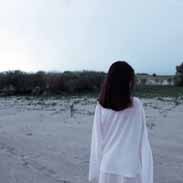Holt World History "The Human Journey" Ch. 3 – Flashcards
Unlock all answers in this set
Unlock answersquestion
Monsoons
answer
are winds that mark the seasons in India.
question
citadel
answer
a strong central fortress, built on a brick platform
question
Indo- Aryans
answer
1750 b.c. the tribes of indo-european peoples gegan to cross the hindu kush mountains into northwestern india. they came from north of the black and caspian seas
question
Vedas
answer
are the Indo-Aryan's great works of religious literature
question
Sanskrit
answer
Indo-Aryan's language.
question
Vedic Age
answer
The period of India's history from 1500 B.C to 1000 B.C
question
Brahmins
answer
Special priests who knew the proper form and rules of religious rituals
question
Upanishads
answer
They were the written explanations of the Vedic religion
question
epics
answer
Long poems based on historical or religious themes
question
Bhagavad Gita
answer
Is part of the most famous Hindu scriptures The Mahabharata, tells the story of a great battle in a kingdom,
question
caste system
answer
A complex form of social organization that began to take shape after the Indo- Aryan migration.
question
varnas
answer
Four social classes that appeared in Indian society.
question
monism
answer
The belief in the unity of God and creation
question
maya
answer
Hinduism teaches the world we see is and illusion this illusion is called maya.
question
reincarnation
answer
The belief in the rebirth of souls.
question
nirvana
answer
A perfect peace for souls who grow spiritually.
question
polytheistic
answer
Is the belief in many gods.
question
Siddhartha Gautama
answer
The founder of Buddhism, he became known as the Buddha, or "the Enlightened One."
question
Chandragupta Maurya
answer
A powerful young adventurer established the Mauryan Empire. Built a grand palace at Pataliiputra on the Ganges River. His army (600,000) conquered all of northwestern India up to the Hindu Kush.
question
Asoka
answer
Chandragupta's grandson came to power in about 270 B.C. died in 232 B.C. Became the first imperial dynasty to hold nearly all of India.Became a Buddhist, sent missionaries tot her countries. The later years of Asokas's rule were remembered as a time of cultural and political advance in India.
question
Chandra Gupta II
answer
(A.D. 374-415) society prospered, great progress was made in the arts.
question
polygyny
answer
A practice where men were allowed to have more than one wife in ancient India.
question
suttee
answer
A practice where widows committed suicide by throwing themselves on top of their husband's flaming funeral pyres. Suttee was sometimes required among the upper castes.
question
Panchatantra
answer
Or "Five Books" they were fables from the Gupta period, stories with morals that taught traits as adaptability, shrewdness and determination.
question
Nalanda
answer
Was a famous Buddhist university located in the eastern Ganges Valley.
question
Aryabhata
answer
Was a mathematician one of the first people known to have used algebra and to have solved quadratic equations. Born in A.D. 400s
question
inoculation
answer
The practice of infecting a person with a mild from of a disease so that he or she will not become ill with the more serious form.
question
raja
answer
Governed small independent states, acted as the military leader, law maker, and judge.



